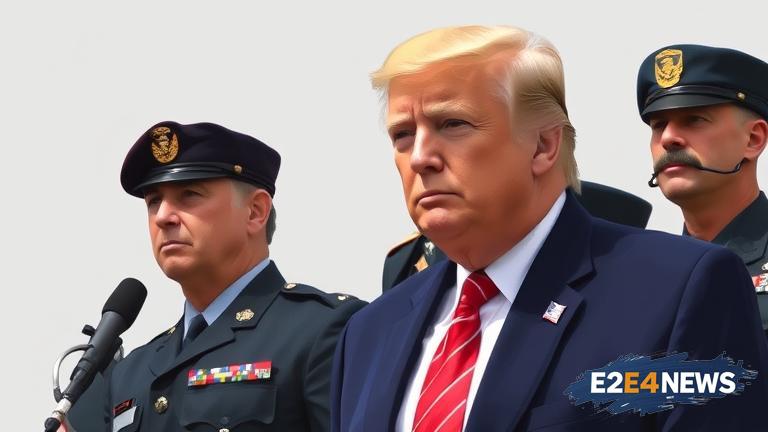In a recent statement, Illinois Attorney General Kwame Raoul expressed his opposition to President Trump’s proposal to deploy the National Guard to Chicago, citing a lack of legal basis for such an action. Raoul’s comments come amidst a heated debate over the role of federal law enforcement in addressing crime and public safety concerns in the city. The Attorney General emphasized that the President’s plan is not grounded in any legitimate legal authority, and that it would be an overreach of federal power. Raoul also pointed out that the National Guard is typically deployed in response to natural disasters or other emergencies, rather than to address crime and public safety issues. Furthermore, he argued that the deployment of the National Guard would not be an effective solution to the complex problems facing Chicago, and that it would likely exacerbate existing tensions between law enforcement and the community. Raoul’s statement was echoed by other local leaders, who expressed concerns about the potential consequences of deploying the National Guard to Chicago. The city has struggled with high levels of violent crime in recent years, and many have called for a more comprehensive approach to addressing the root causes of the problem. However, others have argued that the deployment of the National Guard could provide a necessary boost to law enforcement efforts, particularly in areas with high levels of gang activity. The debate over the National Guard deployment has also raised questions about the role of federal law enforcement in local affairs, and the potential for conflicts between federal and local authorities. In response to Raoul’s statement, the White House has defended the President’s plan, arguing that it is necessary to address the ‘crisis’ of violent crime in Chicago. However, many have criticized the administration’s approach, arguing that it is overly simplistic and fails to take into account the complex social and economic factors that contribute to crime. The controversy surrounding the National Guard deployment has also sparked a wider debate about the relationship between the federal government and urban cities, with many arguing that the administration’s approach is part of a broader pattern of neglect and disinvestment in urban areas. Despite the controversy, the White House has indicated that it will continue to pursue the deployment of the National Guard to Chicago, setting the stage for a potential showdown between the federal government and local leaders. As the debate continues to unfold, it remains to be seen how the situation will play out, and what the ultimate consequences will be for the city of Chicago. The deployment of the National Guard would likely have significant implications for the city, including the potential for increased tensions between law enforcement and the community, as well as the possibility of conflicts between federal and local authorities. In addition, the deployment could also have significant economic and social implications, particularly if it were to lead to a decline in tourism and business investment in the city. On the other hand, some have argued that the deployment of the National Guard could provide a necessary boost to law enforcement efforts, particularly in areas with high levels of gang activity. However, others have countered that the deployment would be a heavy-handed approach that fails to address the root causes of the problem. As the situation continues to unfold, it is clear that the debate over the National Guard deployment will be a contentious and complex one, with significant implications for the city of Chicago and the nation as a whole. The city’s leaders will need to navigate the complex web of federal and local authorities, while also addressing the underlying social and economic factors that contribute to crime. Ultimately, the outcome of the debate will depend on a variety of factors, including the actions of the White House, the response of local leaders, and the broader social and economic context in which the debate is taking place. As the nation watches, it is clear that the situation in Chicago will be a major test of the relationship between the federal government and urban cities, and will have significant implications for the future of law enforcement and public safety in America. The controversy surrounding the National Guard deployment has also raised questions about the role of the media in shaping public perceptions of the issue, and the potential for misinformation and bias to influence the debate. In order to fully understand the situation, it is necessary to consider a variety of sources and perspectives, and to approach the issue with a critical and nuanced eye. By doing so, it is possible to gain a deeper understanding of the complex factors at play, and to develop a more informed opinion about the potential consequences of the National Guard deployment. As the debate continues to unfold, it is clear that the situation in Chicago will be a major focus of attention in the coming weeks and months, and that the outcome will have significant implications for the city and the nation as a whole.
